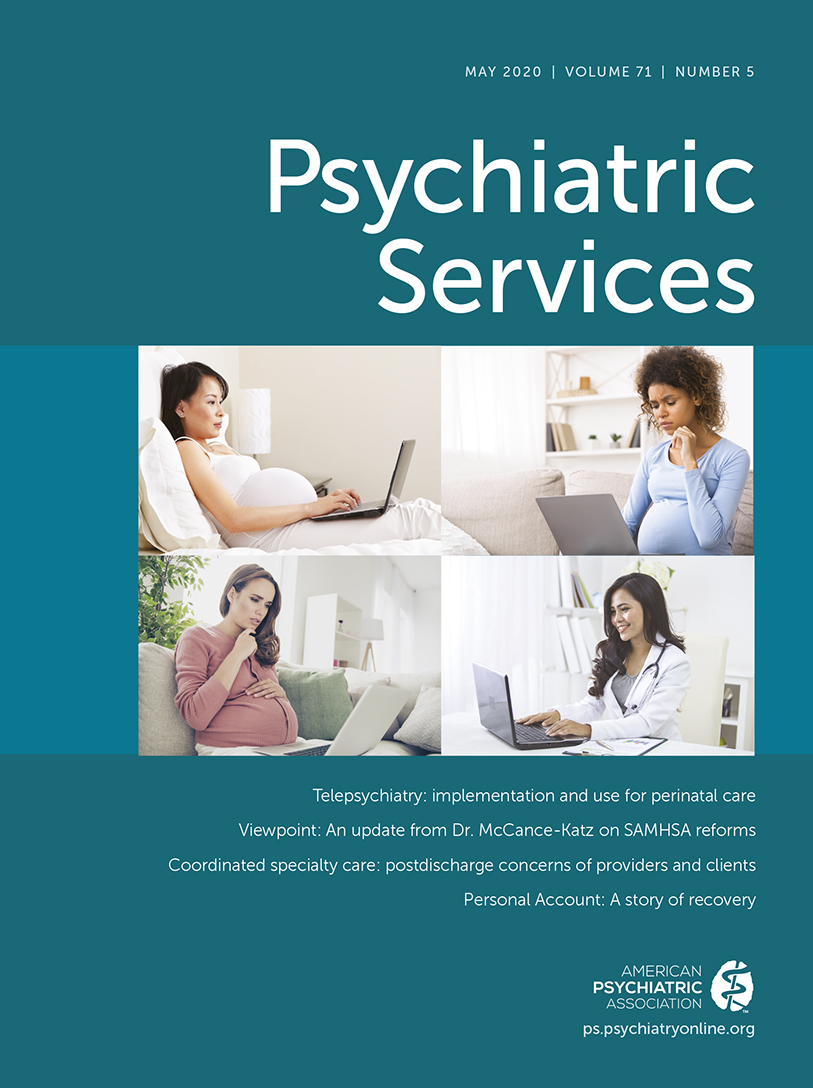Coordinated Specialty Care: An Impetus to Improve All Mental Health Services?
One of the most interesting findings of the Jones et al. (1) study of more than 30 U.S. coordinated specialty care (CSC) programs for first-episode psychosis is concern about the appropriate length of service delivery. This area of concern in turn raises the question, What kind of services should follow “graduation” from CSC? Many of the programs set a 2-year time frame for CSC and then transfer the participant to other available services. Staff members complain that there are insufficient or inadequate follow-along services. Some programs just keep the participants within CSC, and caseloads start to grow. These issues are now the focus of a new federal study of continuity of care after discharge.
The concern that participants who are engaged in services for first-episode psychosis will need CSC-type services after 2 years is not entirely surprising. CSC is not a cure for psychosis, and although it may bend the curve of disablement for individuals with psychotic disorders, it does not often eliminate the need for ongoing services. Furthermore, the components of CSC are evidence-based services and treatments that are recognized as effective for the treatment of schizophrenia and other well-established psychotic disorders. It makes sense that a program would look to CSC component services, such as supported employment or specialized psychotherapies for individuals with psychosis, to support individuals completing several years in CSC. The follow-along service requirements might not be as comprehensive or as intensive as needed during the first 2 years of CSC, but the types of services are the same as or similar to those included in CSC. What CSC program staff members lament is a lack of those evidence-based services in the typical service array within the regular community-based system of services.
The need for continued services after receipt of a course of treatment in a novel service is not a new problem for community mental health. It reminds one of the discovery 40 years ago that a several-year-long course of assertive community treatment (ACT) would not eliminate the need for ongoing intensive services. Investigators and service innovators realized that for many ACT participants the need for intensive services would be lifelong. In a similar way, some CSC participants may need intensive services well beyond the intended timeline of several years. In extreme instances, some individuals move from CSC directly into ACT. That is not a desired outcome, but for some individuals this seems to be the correct service response. For many CSC participants, more of the same kind of services are needed after graduation, and community providers will need to offer them.
Will the new interest in implementing CSC services for individuals in the early stages of psychosis lead to more and better general mental health services? Can the growing interest in CSC services lead to an increase in an innovative suite of services for not only individuals experiencing a first episode of psychosis but also others with longer-standing psychosis? The initial expectation for CSC implementation was to organize a team-based suite of existing evidence-based services (such as family psychoeducation and supported employment) into a multicomponent CSC service for a new target population, but in fact, these services are not widely available in many community mental health centers. Will CSC be an impetus for expanding evidence-based services and making them available not only in the initial stages of psychosis but also as part of the continuity of care for first-episode CSC services users who graduate from CSC? The recent experience of community mental health centers with implementing CSC services makes clear that more of the same services might be needed to meet the needs of CSC graduates, as well as for the regular caseload of individuals with psychotic conditions. One can hope that the enthusiasm for CSC will lead to the introduction of more evidence-based services, such as family psychoeducation and supported employment and education, throughout the mental health service system.
1 : Coordinated specialty care discharge, transition, and step-down policies, practices, and concerns: staff and client perspectives. Psychiatr Serv 2020; 71:487–497Google Scholar



